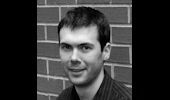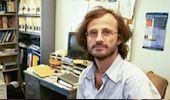Physics Colloquium|From Nuclei to Neutron Stars: Why Is Matter Stable? Feb. 27
The Physics & Astronomy Colloquium Series presents Morten Hjorth-Jensen of Michigan State University and University of Oslo on “From nuclei to neutron stars: why is matter stable?” on Friday, Feb. 27, at 4:10 p.m. in Walter 245. Abstract: To understand why nuclear matter is stable, and thereby shed light on […]
Read more ›





















Comments